analysis Asia
D for slow reforms but A for staying power? Critics grade Malaysian PM Anwar’s 2-year-old government
Some experts have called for greater urgency over the pace of reform, while others praised Prime Minister Anwar Ibrahim’s commitment and staying power.
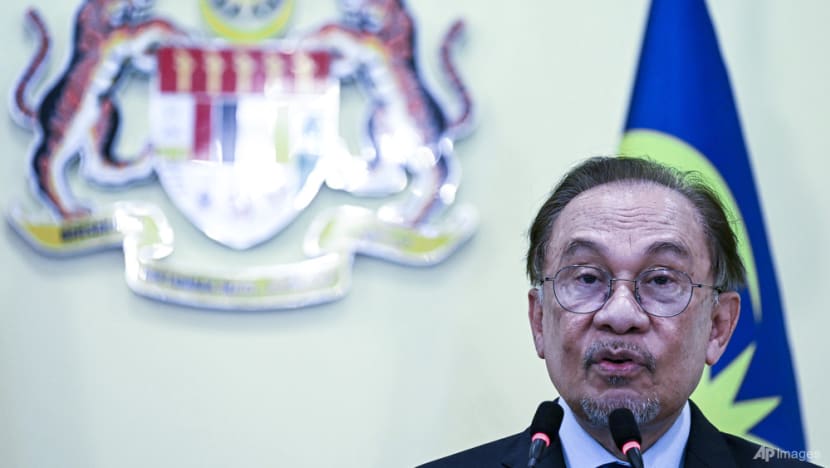
Malaysia's Prime Minister Anwar Ibrahim speaks during a press conference at the Federal Government office "Putra Perdana" in Putrajaya near Kuala Lumpur on Nov 21, 2024. (Photo: AP/Mohd Rasfan)

This audio is generated by an AI tool.
KUALA LUMPUR: Five years, five leaders. After a period of rapid government turnover from 2018 to 2022, many Malaysians see the current Madani administration’s two-year birthday as the mark of relative political stability.
“If the government keeps on changing, how are policies going to stick? Who would want to invest in the country?,” said Mr Mohd Asrul Nizam.
The 39-year-old automobile technician was speaking to CNA at the Kuala Lumpur Convention Centre this weekend, at an event to mark the government’s second anniversary. It has been two years since its leader, Mr Anwar Ibrahim, took the helm of the country in 2022.
Thousands flocked to the event on Friday (Nov 22) where, as well as an opportunity to settle selected outstanding traffic fines issued by the police with a 60 per cent discount, there were booths promoting health screenings, a free helmet exchange programme, a job fair and sales of essential goods.
Mr Asrul was there not only to mark the political anniversary, but also to pay off his company’s eight summonses, most of them which were for speeding. He said that he is not surprised by the fact that the government is still intact.
But given the country's recent history of political instability, some experts consider the administration reaching this two-year mark to be an achievement in itself.
“When the unity government was formed, no one thought that it would be able to last this long. There are 18 parties in the coalition with different agendas, but it has held on,” said Dr Azmi Hassan, a senior fellow at the Nusantara Academy for Strategic Research.
Some political analysts told CNA that Mr Anwar’s biggest achievement to date was to keep the government - made up of 18 different parties - running this long, adding that economic concerns were of a higher priority than institutional reform for most people.
“For the majority, the main concern is economic related. Institutional reforms are a lower priority compared to livelihoods,” said Mr Ibrahim Suffian, co-founder and programs director of the Merdeka Center for Opinion Research.
But there are some, especially those from civil society organisations, who are unhappy with the pace of reform and say that the government should not assume that it has the luxury of time to implement the reforms that were promised in their election manifestos.
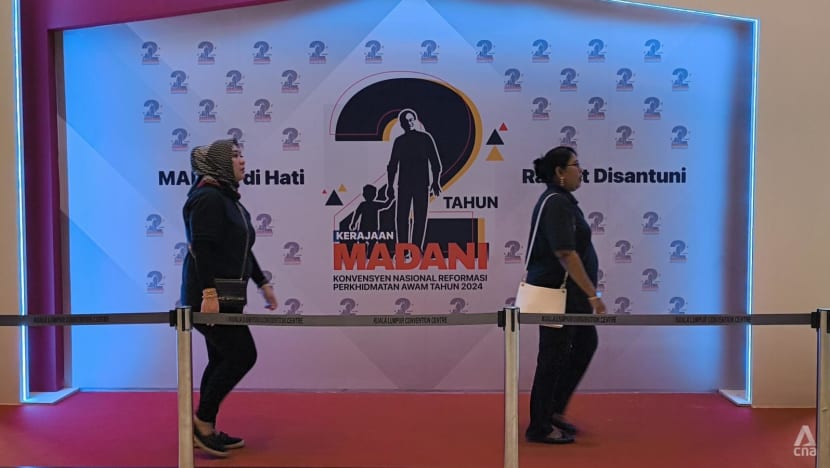
“D GRADE” IN REPORT, DESPITE NEW INITIATIVES
Last month, Mr Anwar told members of his Parti Keadilan Rakyat that the unity government has helped the country to achieve political stability that enabled the federal administration to set clear policies on industry, digital transformation, artificial intelligence, green technology, and semiconductors.
However, the CSO platform for reform - a coalition of 70 organisations – said that excitement for reform is fading as the pragmatism of realpolitik takes precedence.
“Delays, excuses, and a slow pace hinder progress. It is essential to maintain a sense of urgency and not allow fear of identity politics or opposition pressures to derail the momentum for reforms,” said its chairman, Mr Jerald Joseph.
He acknowledged several reforms Mr Anwar’s government has initiated or pledged support for, such as the removal of mandatory death penalty, the subsidy rationalisation of things such as petrol and education and the engagement over the Malaysia Agreement 1963 which seeks to restore the rights of Sabah and Sarawak.
He also said that several new initiatives were similarly promising, such as the vetting of high-profile appointments in government-linked companies, forming additional Parliamentary Special Select Committees, and raising the minimum salary to RM1,700 (US$380) a month.
However, he said that comprehensive reforms in key governance areas are still lacking.
“It is time to create a clear, public roadmap that conveys the urgency and scope of the institutional changes Malaysians need. Without this, the government risks eroding public trust and confidence,” he said.
The executive director of the Coalition of Free and Fair Elections (BERSIH) Ooi Kok Him told CNA that there were two trains of thought when it came to the pace of reforms – some who said time was needed and others who were “impatient” for reforms.
“We believe that time is running out. You may believe that you have three more years just like how Pakatan Harapan leaders believed they had more than 22 months to govern. So you cannot take time for granted and you must implement reforms when you have the opportunity to do so,” he said.
BERSIH is well known for its organisation of protests against the government in the past.
On Tuesday, it revealed its report card for the government, with the Madani administration getting 45.8 per cent or a D grade.
BERSIH said the grade reflected significant gaps between its reform promises and actual implementation.
Mr Anwar’s political secretary Kamil Abdul Munim said in a post on X on Wednesday that reforms as well as the political, economic and administrative change agenda were still ongoing.
He also said that they should learn from their past experiences and that changes cannot be rushed.
“They also have to be done based on priority according to the context and current situation,” he said.
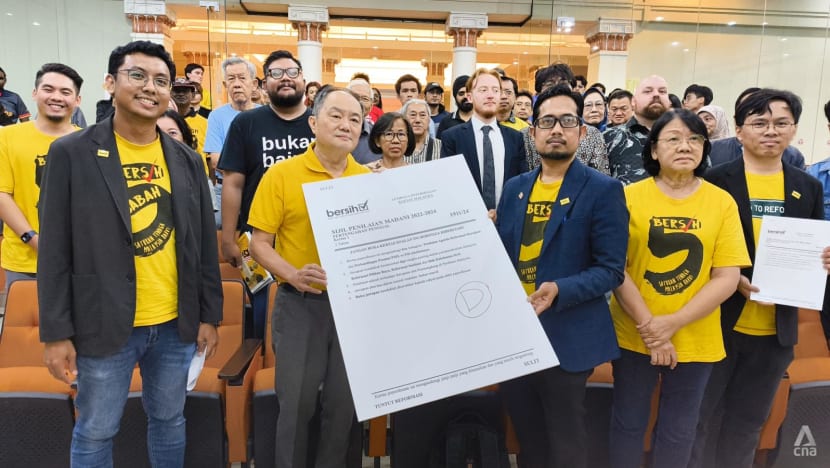
Their report card looked at three aspects – electoral reforms, institutional reforms, and civil liberties with the assessment looking at the fulfilment of manifesto commitments and a comparative evaluation of progress relative to previous administrations.
It did not consider aspects such as the economy.
The report said that when it came to electoral reforms, there had been no meaningful progress on key issues such as constituency malapportionment, gerrymandering or the introduction of absentee voting for outstation voters, despite campaign promises to address these.
On institutional reforms, the report said the government achieved incremental progress, including passing the Public Finance and Fiscal Responsibility Act and strengthening Parliamentary Special Select Committees.
It noted however that major reforms to safeguard institutional independence, such as separating the roles of the attorney general and public prosecutor, or institutionalising fair Constituency Development Funds, remain stalled or unfulfilled.
It added that critical appointments, such as those of the attorney general and the heads of key institutions such as the Malaysian Anti Corruption Commission (MACC) and Election Commission (EC), continued to lack parliamentary oversight.
On civil liberties, BERSIH said that while the government had abolished the mandatory death penalty, it had failed to repeal or amend laws such as the Sedition Act, the Communications and Multimedia Act, and the Peaceful Assembly Act.
The Malaysian Cabinet agreed to review the Sedition Act last year so that it can only be applied to provocations towards the royal institution. In March this year, it agreed to start the process of amending the act.
However, in the meantime, activists have still been arrested under the Sedition Act for incidents unrelated to royalty.
“Activists and opposition figures continue to face harassment under these laws, contradicting the government’s reformist rhetoric,” said the report.
The report even claimed that comparative analysis showed that Mr Anwar lagged behind his predecessors in implementing reforms within the first two years of coming into power, coming in third behind Mr Ismail Sabri Yaakob and Dr Mahathir Mohamad.
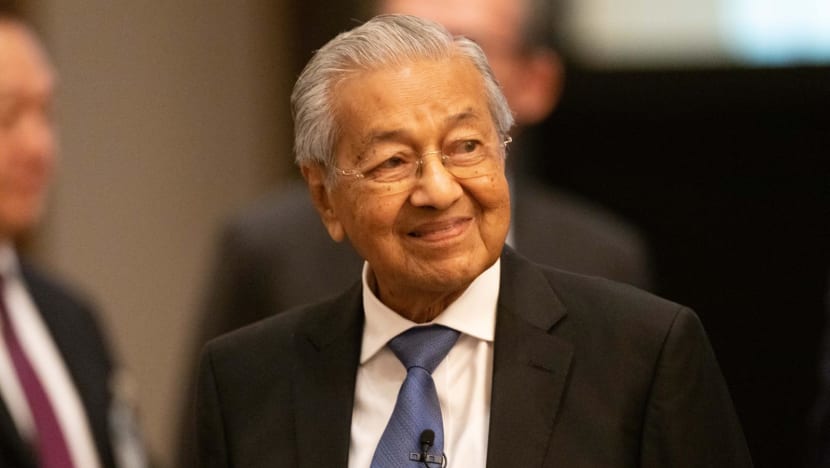
Muhyiddin Yassin and Najib Razak were ranked fourth and fifth respectively in the report.
“Leaders such as Ismail Sabri Yaakob and Mahathir Mohamad made more substantial progress within similar time frames,” said the report, adding that Mr Anwar even underperformed compared to Najib in his first term, although Najib’s subsequent actions in undermining key institutions for his political benefit during his second term meant his administration ranked bottom.
“The Unity Government’s cautious and incremental approach has slowed reform momentum and diminished public confidence,” added the report.
Mr Ooi said that a post-election coalition government should not be an excuse to abandon all reform promises, pointing out that Barisan Nasional (BN) and Pakatan Harapan (PH) - coalitions that are part of Mr Anwar's government - shared four major promises that have not been fully implemented.
He said that one of the common promises made by both coalitions in their manifestos was that major appointments at public institutions such as the MACC and EC would go through parliamentary scrutiny, but this has not happened so far.
Mr Azam Baki was reappointed as the chief commissioner of MACC in May this year without undergoing parliamentary scrutiny.
Economy minister Rafizi Ramli in Jan 2022 said that some of MACC actions against PH were political persecution and that he would be called up for questioning if PH formed the government.
“Election manifestos remain binding even when parties enter coalitions. Coalitions should be formed to advance and fulfil these agendas, not to set them aside,” said Mr Ooi.
Mr Anwar was sworn in as prime minister on Nov 24, 2022, after the 15th General Election failed to produce a clear winner and resulted in a hung parliament.
He leads a unity government comprising PH, previous ruling coalition BN, Gabungan Parti Sarawak, Gabungan Rakyat Sabah and Parti Warisan among others.
The government has also faced criticism over some of its plans and proposals.
Ms Sophie Lemière, an adjunct fellow with the Southeast Asia Program at the Center for Strategic and International Studies, said that several planned reforms, such as the Malaysian social media licensing plans, amendments to its citizenship bills and the “Mufti bill”, are stirring Malaysia “backward”.
“The stability of the government and the current desperate need for economic recovery are the recurrent political arguments used to justify the necessity to cooperate with existing power structures while satisfying the most conservative sections of society even if that means compromising civil liberties,” she said in an article on Nov 1.
The “Mufti Bill” aims to define the role and responsibilities of the Islamic jurors in the Federal Territories, which include Kuala Lumpur, Labuan, and Putrajaya.
In a response to BERSIH’s grading, Mr Anwar told parliament on Thursday that the government was still new and could perform better over time.
“About BERSIH's (rating), it's okay if they want to give us a 'D'. At least it's not an 'F'. (If in UPSR) we get a 'D', later during SPM we should get an 'A'. (Because) we are still very new,” he was quoted as saying by news portal Malaysiakini.
The UPSR refers to the now discontinued public exam for primary students while the SPM is the equivalent of the O-levels examination taken by fifth year secondary school students.
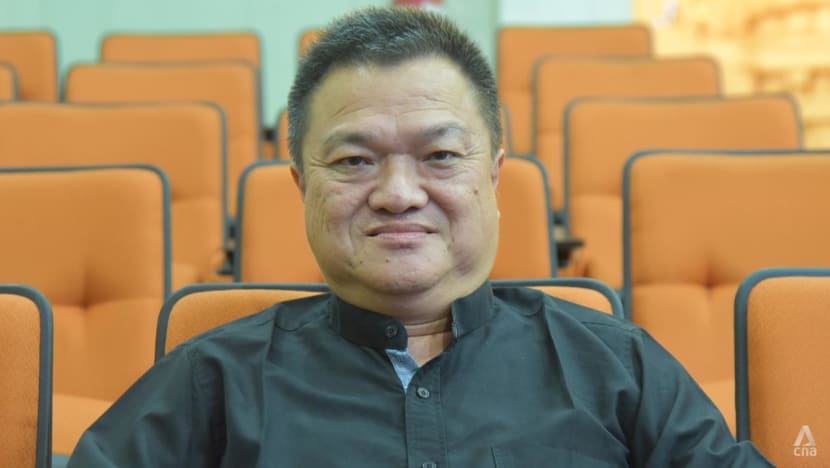
ANWAR “COMMITTED TO REFORMS” BUT MORE CHANGES NEEDED
In a public forum held last week by the CSO platform for reform, Deputy Law Minister M. Kulasegaran said that he also wanted to see more changes in the country although there were many challenges they had to overcome, including pushback from the civil service.
“I also want to see the changes (happening),” he said, giving the example of wanting more power to be given to the Human Rights Commission of Malaysia which he described as being “toothless”.
He also said that the appointment of the MACC chief for example was something that he believed should be brought to the parliament.
“This is what we said when we were there (as opposition) … We should empower it. If you refer to our speeches in parliament, many of us would have said that. I feel very wrong about it,” said Mr Kulasegaran.
He however claimed that Mr Anwar is committed to reforms.
“He has given a fair leeway to the ministries and ministers … and that change must come from within (the ministries). He has no time to look into any particular matter,” he said.
Dr Wong Chin Huat, a political scientist from Sunway University in Kuala Lumpur, told CNA that the government was stable and could complete its full term.
While it had delivered some reforms, he asked if it is trying to co-opt the opposition into the coalition.
“This government claimed that it cannot implement a lot of reform for fear of backlash. That’s true when you look at certain things such as the Sedition Act but fair treatment of the opposition is certainly not something that will get you backlash anywhere. Not from the society or not from the opposition,” he said, in reference to the Constituency Development Funds.
He said the reason why Malaysia ended up being embroiled in the 1Malaysia Development Berhad (1MDB) scandal for instance was because there were not enough checks and balances.
“Ultimately you don’t have opposition on the pretext of nation-building, stability and harmony but eventually what you are doing is undermining democracy,” he added.
Dr Wong said that for some voters, the reforms mattered, and they used it to measure if the government kept to its promises.
“If the government acts like these things didn’t matter, there is a section of voters who would simply not go out and vote and this government would pay the price heavily,” he said.
He believes that even a 10 per cent drop of votes from non-Malays and liberals would be enough to see PH lose half of their seats. But he added that the vote drop would affect other parties and coalitions as well.
“If PH goes down, BN probably wouldn’t be doing much better,” he said, referring to Barisan Nasional.
KEEPING GOVERNMENT INTACT: THE BIGGEST REFORM
In a press conference on Friday, Communications Minister Fahmi Fadzil said the government would examine the views of various parties and strive to improve the quality of services besides efforts to improve, change and make institutional reforms.
He said that the Minister of Law and Institutional Reform Azalina Othman Said would be introducing several bills in parliament soon, reflecting the Government's efforts and ideas to bring about reforms to the institutions.
“Many bills are being planned and are in the process (of being introduced) including the Malaysian Media Council Bill. This is the government’s commitment to improvement, including the ecosystem for media practitioners,” he said to a question about BERSIH's views on the government when it came to reform.
Economy Minister Rafizi Ramli said that he welcomed feedback from the different stakeholders and that as a cabinet member, he did not look at it negatively.
“We need to find the most harmonised way to carry out these reforms,” he was quoted as saying by news platform Free Malaysia Today.
“Some of the major reforms have been initiated, but it will take a while (for others),” he said on Wednesday when asked about the BERSIH report on the government.
Dr Azmi told CNA however that Mr Anwar’s biggest reform was to make sure there was political stability in the country and government.
“Considering what we have been through over the past few years, it is the best reform for the last two years. I don’t think the opposition can topple the government,” he said.
Since PH defeated BN in the 2018 general elections, there has been political instability in Malaysia, said Dr Azmi.
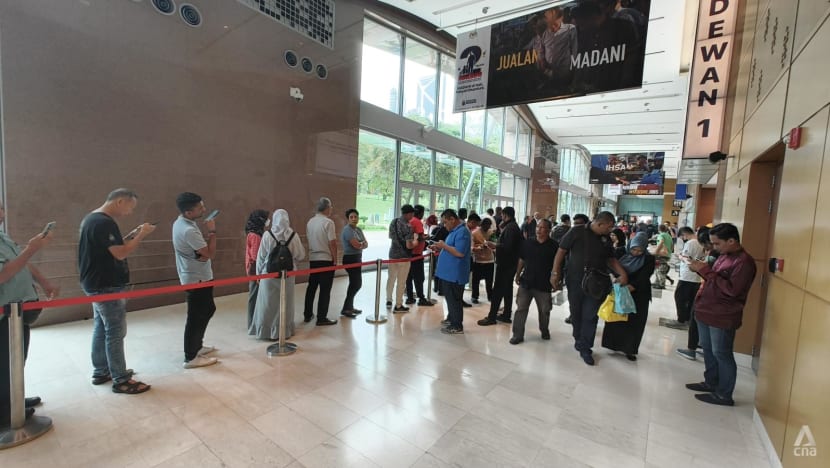
In 2020, the “Sheraton Move” crumbled the Mahathir Mohamad administration from within. Part of this plot was reportedly hatched in the Sheraton Hotel in Petaling Jaya.
The move saw more than 30 MPs in the ruling PH alliance defect, bringing it down after it had been in charge for just 22 months.
This led to the appointment of Muhyiddin as prime minister, as Parti Pribumi Bersatu Malaysia (Bersatu), Parti Islam Se-Malaysia and BN joined hands to form a new ruling coalition.
However, Muhyiddin’s tenure lasted only until August 2021 when some MPs from BN’s main component party, the United Malays National Organisation, pulled their support for him and put forth party vice-president Ismail Sabri Yaakob to replace Muhyiddin as prime minister.
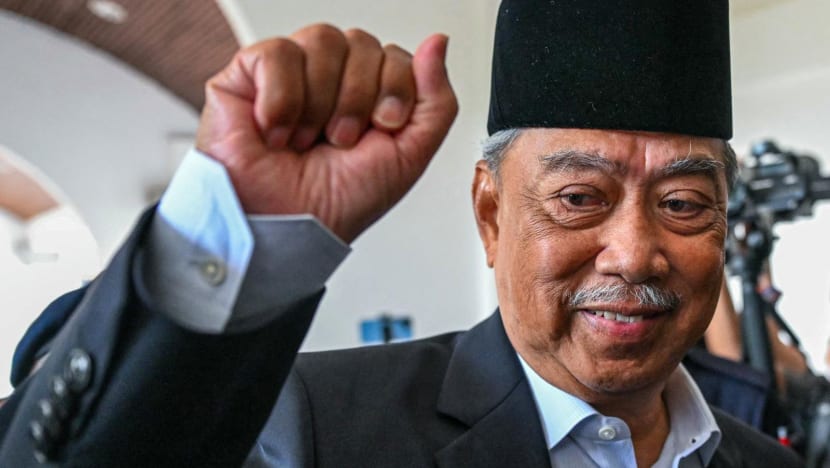
“When he formed the unity government, no one thought that he (Mr Anwar) would be able to last this long. There are 18 parties in the coalition with different agendas, but he has held on,” said Dr Azmi.
Mr Anwar has served longer as prime minister than all three of his predecessors since the May 2018 general elections.
Dr Azmi believed that Mr Anwar has been doing his best to rid the country of corruption and that reforms could come from this effort.
He also pointed to the subsidy rationalisation plan as one of the toughest things any Malaysian prime minister could do.
“That requires political will and is one of the most difficult and sensitive things to do,” he said.
He said that most people were concerned with the high cost of living, but that problem was not unique to Malaysia and that Mr Anwar couldn’t be blamed for it.
Mr Ibrahim of the Merdeka Centre said that while it has been a bumpy road so far with doubts about the government's ability to stay intact, how it is perceived has improved over time.
“The government has proven itself to be stable and functional and people are appreciating efforts made by the government to to attract foreign investment. There has been a positive impact and the mood is changing gradually,” he said.
When asked about the lack of institutional reforms, Mr Ibrahim said that it was understandable as the government was still trying to learn the lessons from before, citing the PH government that was brought down in 2020.
“They want to address bigger concerns such as jobs, wages and government efficiency. That is needed to be addressed first to secure legitimacy from the majority of voters. They are aware that they didn’t get cross-cutting support (from voters) and the number one issue is the economy.
“They have to seize on that first and the priority is bringing in investments and part of improving efficiency to approve applications and projects,” he said.
He however said that certain things such as Deputy Prime Minister Ahmad Zahid Hamidi’s acquittal from a corruption charge last year are hanging over Mr Anwar’s head.
He added that those who cared about institutional reforms were from the upper middle-class group who would have voted for PH.
Mr Ibrahim also said there were quiet reforms such as the civil service reforms where the position of Chief Secretary to the Government went to Mr Shamsul Azri Abu Bakar, a low-profile civil servant.
“The dissatisfaction remains but ultimately it is a smaller segment of the crowd that the government has to attend to,” he said.
The stability of the government is the most important and people believe it is needed to create economic growth. The majority of people don’t want to go back to the volatile period between 2018 and 2022.”


















